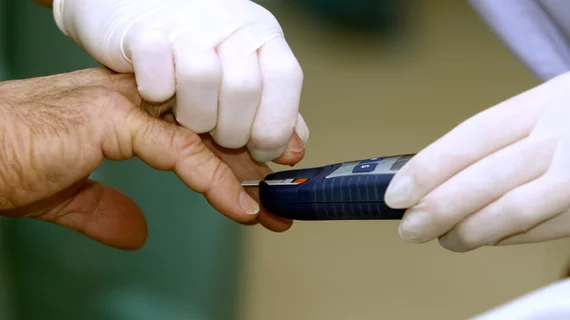New therapy could lead to long-term reversal of type 1 diabetes in humans, dogs
Researchers from Purdue University in West Lafayette, Indiana, are working to develop a new type 1 diabetes therapy that may lead to the long-term reversal of the disease in humans—and man's best friend.
According to a release, researchers, in collaboration with the Indiana University School of Medicine, developed a collagen solution mixed with pancreatic cells during a preclinical animal study. The study revealed that the mixture is the “first minimally invasive therapy to successfully reverse type 1 diabetes within 24 hours and maintain insulin independence for at least 90 days.”
The occurence of diabetes is similar between dogs and humans. Because of this, it’s believed both could benefit from the same cure, which would be a “new set of pancreatic cells to replace the clusters of cells, called islets, that aren't releasing insulin to monitor blood glucose levels.”
According to the release, researchers changed how the islets were packaged within the collagen solution. Also, they were injected through the skin, instead of in the liver.
“The team removed the need for transplanting in the liver by thoroughly mixing mouse islets, provided by [Indiana University’s] lab, with the collagen solution. Upon injection just under the skin, the solution solidifies, the body recognizes the collagen and supplies it with blood flow to exchange insulin and glucose,” the release said.
The mixture was tested in mouse twins and non-twins. Initial tests showed if the “mouse donor was a twin to the recipient, the diabetic mouse could go at least 90 days without needing another shot." If not twins, the mouse would have “normal blood sugar for at least 40 days.” Additionally, nearly all of the transplanted islets survived either scenario.
“As they transition to testing the formulation in naturally diabetic dogs, the researchers will explore the feasibility of transplanting pig islets or stem cells programmed to produce insulin, in hopes that either method will further increase donor availability,” the release said. “The islet transplantation therapy might also have implications for better treating severe pancreatitis.”

